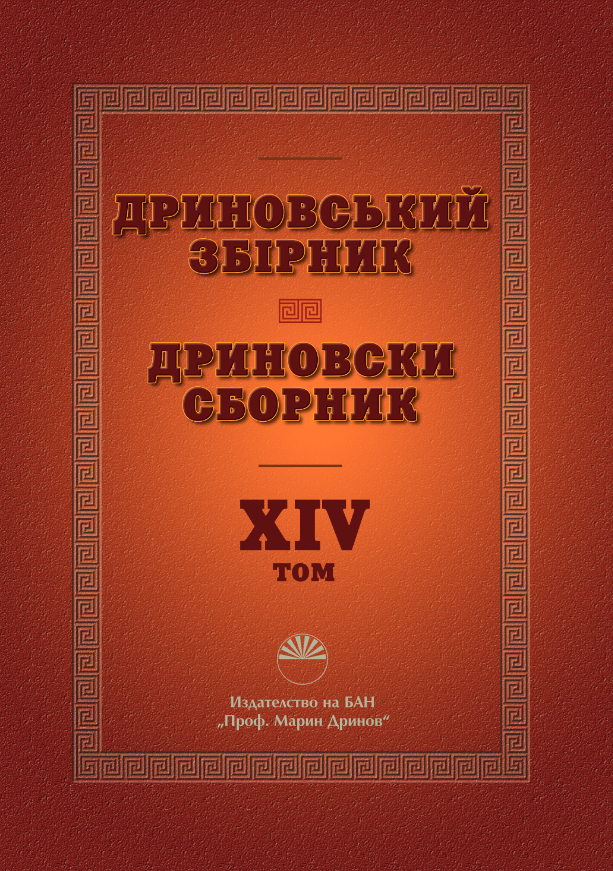Посткомуністичний транзит України (на прикладі еволюції Народного Руху України)
Анотація
У статті розкривається еволюція Народного Руху України від найбільш впливової громадсько-політичної організації початкового етапу незалежного державотворення в Україні до маргінальної політичної партії. Складна, нелінійна та суперечлива траєкторія посткомуністичного транзиту, яку демонструє Україна на пострадянському просторі, наявність наочних реверсів на шляху демократизації нашої країни викликають потребу проаналізувати ґенезу новітнього національно-визвольного руху та основні фактори, що спричинили проголошення незалежності та відмову від прокомуністичного концепту розвитку. В історії НРУ виділяються два основні етапи: 1) від заснування в 1989 р. до прийняття Конституції в 1996 р. – активна політична діяльність, великий вплив на державотворчий процес; 2) з 1996 р. – спадання активності та втрата впливу на основні політичні процеси. Загалом Народний Рух України став компромісною формулою утворення організованої народної опозиції для кадрів КПУ. Народний Рух України як масовий антикомуністичний та антиімперський суб’єкт у другій за масштабами радянській республіці безперечно виступає головним рушійним чинником революційних подій на зламі 80-90-х років ХХ століття у колишньому СРСР. Зовнішньополітичний чинник виявляється у тому, що друга за чисельністю в СРСР українська нація через тривалий історичний проміжок заявила про своє право на політичне самовизначення через побудову власної суверенної національної держави, чим детонувала Радянський Союз.
Основним історичним результатом діяльності НРУ як масового громадського об’єднання було проголошення державної незалежності України, але він не спромігся стати демократичною партією влади за нових історичних умов. На сучасному етапі Народний Рух України перетворився на національно-консервативну партію, яка мало впливає на сучасні політичні процеси в Україні.
Завантаження
Посилання
Blan, E. 2009. Rodom iz KHB. Systema Putina. [Originally from the KGB. Putin’s system]. Kyiv: Tempora, 360 s. [in Ukrainian]
Boyko, O. 1996. Ukraina 1991-1995 rr.: tini mynuloho chy kontury maibutnoho? [Ukraine 1991- 1995: shadows of the past or contours of the future?] Kyiv: Abrys, 207 s.[in Ukrainian]
Chyhrinov, V.I. & Polishchuk, I.O. (2006). Derzhavotvorcha tradytsiia Ukrainy: polityko- kulturnyi vymir. [The state-building tradition of Ukraine: a political and cultural dimension]. Kharkiv: KhIBM, 380 s. [in Ukrainian]
Derevinskyi, V. 2010. Transformatsiia NRU z hromadsko-politychnoi orhanizatsii v politychnu partiiu. [Transformation of the NRU from a public-political organization into a political party]. In Narodnyi Rukh Ukrainy: istoriia, ideolohiia ta politychna evoliutsiia (1989-2009): Proceedings of the kruhloho stolu, prysviachenoho 20-i richnytsi stvorennia Narodnoho Rukhu Ukrainy za perebu- dovu. Kyiv, 22 veresnia 2009. Kyiv: Instytut istorii Ukrainy NAN Ukrainy, s. 29-38. [in Ukrainian]
Hay-Nyzhnyk, P. 2012. Narodnyi Rukh Ukrainy. In Ukrainska bahatopartiinist: politychni partii, vyborchi bloky, lidery (kinets 1980-kh – pochatok 2012 rr.) [The People’s Movement of Ukraine. Ukrainian multiparty politics: political parties, electoral blocs, leaders (late 1980s – early 2012)]. Entsyklopedychnyi dovidnyk. Kyiv: IPiEND im. I.F. Kurasa NAN Ukrainy, s.274-280. [in Ukrainian]
Haran, O. V. 1993. Ubyty drakona (Z istorii Rukhu ta novykh partii Ukrainy). [Kill the Dragon (From the History of the Movement and New Parties of Ukraine) ] Kyiv: Lybid, 200 s. [in Ukrainian]
Honcharuk, H. I. 1997. Narodnyi Rukh Ukrainy. Istoriya. [The People’s Movement of Ukraine. History]. Odesa: Astroprynt, 300 s. [in Ukrainian]
Kalynovskyi, Yu.Yu. 2016. Natsionalna ideia yak tsinnisna determinanta derzhavotvorchoho protsesu v Ukraini. [The national idea as a value determinant of the state-making process in Ukraine]. Visnyk Natsionalnoho universytetu «Yurydychna akademiia Ukrainy imeni Yarolava Mudroho». Ser.: Filosofiia, issue 1 (28), s. 98-105. [in Ukrainian]
Kaspruk, V. 2009. Chomu Rukh tak i ne stav providnoiu politychnoiu syloiu Ukraini? [Why has the Rukh not become a leading political force in Ukraine?]. Radio Svoboda. Retrieved from https://www.radiosvoboda.org/a/1818227.html (Date of the application 14.08.2020). [in Ukrainian]
Kormych, L. I., Shelest, D.S. 2004. Hromadski obiednannia ta politychni partii suchasnoi Ukrainy. [Public Associations and Political Parties of Modern Ukraine]. Kyiv: Avrio, 261s. [in Ukrainian]
Korotkov, D. S. 2012. Politychna elita Ukrainy: stanovlennia i rozvytok u vyborchomu protsesi Ukrainy. [The Political Elite of Ukraine: Formation and Development in the Electoral Process of Ukraine]. Kharkiv: Vyd-vo KhNEU, 208 s. [in Ukrainian]
Kravchuk, O. 2009. Zlet i zanepad Rukhu: plany, rezultaty ta uroky. [The Rise and Decline of the Movement: Plans, Outcomes and Lessons]. Universum, issue 5-6 (187-188), s. 57-69. [in Ukrainian]
Kukuruz, O. V. 2010. Politychna opozytsiia v Ukraini ta Polshchi: porivnialnyi analiz. [Political opposition in Ukraine and Poland: a comparative analysis]. Kyiv: Naukova dumka, 199 s. [in Ukrainian]
Lavrynovych, O. (Den.7 August 2018,). Yak «Rukh» vidmovyvsia staty partiieiu vlady. [How the Rukh refused to become a party o power]. Retrieved from https://day.kyiv.ua/uk/article/polityka/yak-ruh-vidmovyvsya-staty-partiyeyu-vlady [in Ukrainian]
Lytvyn, V.M. 1994. Politychna arena Ukrainy: diiovi osoby ta vykonavtsi. [The political arena of Ukraine: actors and performers]. Kyiv: Abrys, 495 s. [in Ukrainian]
Lytvyn, V.M., Smolii, V.A. & Levenets, Yu.A. 2007. Ukraina: politychna istoriia. XX – pocha- tok XXI st. [Ukraine: A Political History. XX – beginning of XXI century]. Kyiv: Parlamentske vyd-vo, 798 s. [in Ukrainian]
Patnam, R.D., Leonardi, R. & Nanetti, R.Y. 2001. Tvorennia demokratii: tradytsii hromadi- anskoi aktyvnosti v suchasnii Italii. [Creating Democracy: Traditions of Civic Engagement in Modern Italy]. Kyiv: Vydavnytstvo Solomii Pavlychko «Osnovy», 302 s. [in Ukrainian]
Pustovit, S. 2010. Narolnyi Rukh: problema vynyknennia. [The People’s Movement of Ukraine: The Problem of Emergence]. Retrieved from https://www.oldconf.neasmo.org.ua/node/35 (Date of the application 19.11.2020). [in Ukrainian]
Riabokon, A. (2014, October 1). Narodnyi Rukh Ukrainy – istoriia, chy perspektyva? [The People’s Movement of Ukraine – History, or Perspective?] Trudova slava, 2014, 1 October. [in Ukrainian]
Statut NRU. 1989. URL: https://mnru.com.ua/pro-nas/statut-nru [in Ukrainian]
Shveda, Yu.R. 2005. Politychni partii: Entsyklopedychnyi slovnyk. [Political Parties: An Encyclopedic Dictionary]. Lviv: Astroliabiia, 488 s. [in Ukrainian]

